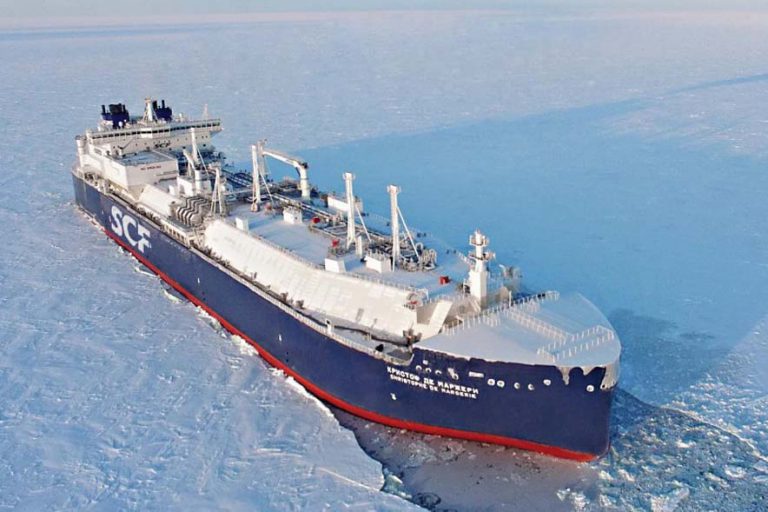The $300m Christophe de Margerie carried a cargo of LNG from Norway to South Korea in 19 days, about 30% quicker than the conventional southern route through the Suez Canal. On its maiden voyage, the tanker used its integral icebreaker to cross ice fields 1.2m thick, passing along the northern sea section of the route in the Russian Arctic in a record six 1/2 days.

Accredited Certification
Earn professional certificates approved by the American Bureau of Shipping (ABS) and/or Nippon Kaiji Kyokai (ClassNK). Most countries accept Class-approved training certificate as equivalent for local endorsements. Check with your flag state for endorsement requirements.
This is an ABS-approved course. Candidates will earn an ABS-approved course completion certificate upon successful completion of this course.
This course is also approved by the US Coast Guard. US citizens can earn a USCG-approved course completion certificate by passing a proctored online test from a USCG-approved location.
This course meets the STCW mandatory minimum requirements for training and qualification of masters and officers on board ships operating in polar waters. The course meets the requirements of Basic Training in Polar Water , STCW table AV/ 4-1.
Candidates who have completed this course “are deemed to have fulfilled the STCW requirements and can work on vessels certified in accordance with the Polar Code”. The Coast Guard has issued CG-MMC Policy Letter 02-18 “Guidelines for Qualifications of Personnel for Issuing STCW Endorsements for Basic and Advanced Polar Code Operations,” (83 FR 121, June 22, 2018).
Upon registration, courses are conveniently accessible online for students to participate at their own pace and on their own schedule, within a 365 day program completion time frame (7 courses). Courses may be taken simultaneously.